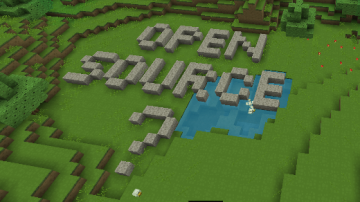It's thanks to the COVID-19 pandemic that I, like so many of you, have had to rapidly adjust to a life lived almost entirely at home.
It's not an ideal situation, but I've had some real consolation—there has never been a better time to play games on Linux.
Don't take my word for it. Check this out:
Somehow, Linux has become a serious gaming platform. How on earth did that happen?
Proton has been very positive
The biggest improvement of the past couple of years is how many games will run—and how easy it is to run them. That's largely thanks to Proton, an open source compatibility layer funded by Valve and delivered by Codeweavers.
Proton is based on the open source compatibility layer WINE, also developed by Codeweavers.
Before Proton, Linux gamers weren't entirely without options. You could get things working with WINE, which sometimes was easy with Lutris, and sometimes a right royal pain. A few titles even had native ports.
At the time of this writing, Proton has brought more than 6500 Windows games to Linux. They're making it better all the time, too, so expect this list to keep growing.
AMD's open source driver rules now
AMD has a history of supporting and contributing to open source drivers. This has paid dividends in performance over the past year. Phoronix has all the nitty-gritty.
My much more subjective take is that, with the AMD graphics on my rather modest laptop, I've definitely noticed gaming improve as newer HWE kernels reached me on Linux Mint and KDE Neon.
Basically, if you're using AMD hardware, all you need is a somewhat recent kernel, and you're good to game. It's a similar story if you're using integrated graphics from Intel.
NVIDIA drivers remain a pain point
Thanks to the Nouveau project, NVIDIA processors also have open source drivers.
Unfortunately, these drivers offer only a fraction of the performance, and there's not a lot the developers can do about it. NVIDIA locks down their hardware so that if the driver isn't signed by NVIDIA, you just can't run the GPU at anything like full speed.
NVIDIA made an intriguing announcement at the end of last year, hinting that a new way may be just around the corner. Let's hope something comes of it.
In the meantime, if you have NVIDIA hardware, you're going to have to choose between software freedom and state of the art gaming.
Needing a proprietary driver just to shoot some bad guys isn't only a compromise to open source principles; it's also a pain in the tuchus just to have to think about.
With NVIDIA having most of the market in discrete GPUs, this remains a sore spot for Linux as a gaming platform.
Software is simple to install
The good news is that if you do want to install a proprietary NVIDIA driver, it's usually pretty easy. Different distributions handle it differently—Pop! OS puts it right into the ISO.
In fact, just about anything you might need to install is pretty easy these days. My preparations for the pandemic lockdown included wisely investing in a gamepad. Getting that to work took less than a minute, thanks to the steam-devices package in the repositories.
Even better: When I decided to switch from Linux Mint to KDE Neon, I took my home partition with me, which included my small library of Steam games. As soon as I reinstalled the Steam client—as easy as clicking "install Steam" on the website—they were all working straight away.
Linux has pulled ahead on frames per second (on some titles)
While Linux gaming has been improving for a while now, for a long time, it was just assumed that it meant sacrificing a bit of frame rate on the games you could get to run. This trade-off was thought worth it to enjoy all the other benefits of a more secure, stable, customizable, and privacy-respecting operating system.
In the middle of last year, something curious happened. Linux started to outperform Windows on a few titles!
This video from Chris Titus goes into it in detail:
Could Linux go big as a gaming platform?
While Linux has become a viable and even enviable platform for gaming, its market share remains in the dumps among gamers. This could be illustrative of a wider problem—the perception that the Linux desktop experience is not great, or that desktops themselves aren't even relevant anymore.
This shouldn't matter only to those directly involved in Linux products and services, but to users too. Right now, it's far too easy for game publishers to treat Linux like it's not important.
This was made abundantly clear recently when Epic Games dropped multiplayer support on Linux for the popular title "Rocket League." This was especially disappointing because Epic has been supportive of Linux gaming in the past.
With the pace of change in Linux gaming, though, these are all surely teething problems. It's Linux's time to shine as a gaming platform.








6 Comments